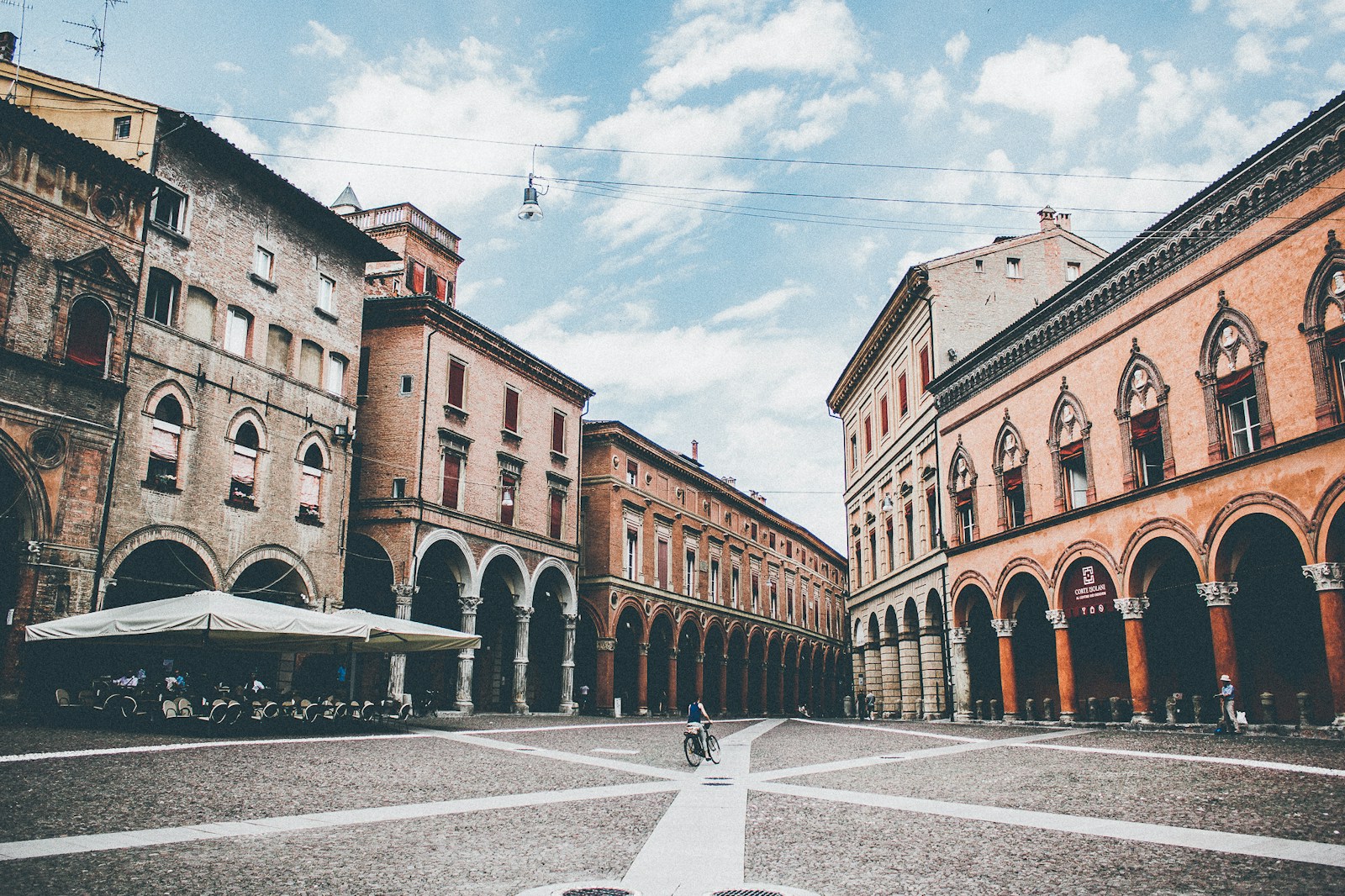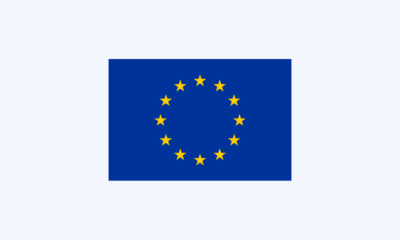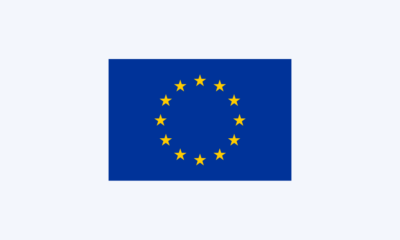Politics
EU’s cohesion policy: Council sets out clear guidelines for the future

he Council today approved conclusions setting out its position on key aspects for cohesion and the future of EU’s cohesion policy. The conclusions will serve as a basis for discussions in the coming months and for the Commission’s work on the legislative framework for cohesion policy after 2027.
I am delighted that today we approved these conclusions setting the priorities for our work in the coming months. Having as our guiding principle that EU’s cohesion policy and competitiveness are closely interlinked, I am convinced that we will manage to agree on an efficient and future-proof cohesion policy for the next financial perspective and respond effectively to Europe’s emerging priorities and needs.
Katarzyna Pełczyńska-Nałęcz, Minister of Funding and Regional Policy of Poland
The conclusions recall that the objective of economic, social and territorial cohesion is at the heart of the European project and that EU policies and actions should contribute to the achievement of this objective through considering their territorial dimension and their coordination, and with the active involvement of the national, regional and local authorities and stakeholders, as relevant. The Council also highlights the importance of promoting clear complementarities and synergies among EU policies and of avoiding overlaps among different instruments.
The Council refers to the Letta report, which highlights that an effective cohesion policy, implemented in a balanced way across the EU, is a key condition for the success of the single market. In this regard, the text reaffirms that competitiveness and cohesion are interconnected and emphasises the role of both enhancing competitiveness of the EU as a whole and improving cohesion across countries and regions, thereby contributing to the achievement of EU strategic priorities and addressing EU challenges in a mutually reinforcing manner.
The conclusions recall the foundations and key principles of cohesion policy, such as shared management, multi-level governance, partnership, as well as people- and place-based approach, being applied alongside the principles of proportionality and subsidiarity. In this context, cohesion policy should continue to play a key role in reducing regional disparities in Europe, helping less developed regions to catch up with the more developed ones, with a view to upward convergence of the EU.
In terms of governance, shared management between the Commission, member states, and regional and local authorities must remain the delivery method of cohesion policy. The Council recalls the importance of multi-level governance that enables effective interventions at the most appropriate territorial levels in each member state, at the same time strengthening the sense of shared responsibility. Together with shared management and dialogue with partners, both during the programming and implementation phases, multi-level governance facilitates the achievement of EU policy goals and empowers the member states, regional and local authorities.
Finally, the Council recalls that cohesion policy is a long-term investment policy and that improving its efficiency and effectiveness can be achieved by focusing on results. To this end, the Commission is invited to make cohesion policy more result-oriented, in particular to use an evidence-based approach in designing the framework of the future policy. The Council also calls the Commission to further develop and simplify the well-established systems of monitoring and evaluation, in order to assess how investments and reforms deliver strategic goals, to strengthen tools aimed at examining the potential and real impacts of policy interventions, as well as to further embed territorial impact assessments in policy preparation and evaluation.
Politics
EIB to provide $110 million to finance energy efficiency and renewable energy investments
- $110 million loan to Banco del Estado de Chile to finance energy efficiency and renewable energy investments for small and medium businesses and industries among others, including the value chain companies for critical raw materials in the country.
Today the European Investment Bank (EIB) and Banco del Estado de Chile signed in Santiago de Chile a $110 million loan to finance energy efficiency and renewable energy investments for small and medium businesses and industries among others, including the value chain companies for critical raw materials in the country. The operation is in line with the EU Global Gateway Investment Agenda in Chile and fosters partnerships to develop sustainable local value chains in the critical raw materials segment.
The loan was signed by Daniel Hojman, President of Banco del Estado de Chile, and by Thouraya Triki, EIB Director of the International Partners Department, in the presence of the European Commissioner for International Partnership Jozef Sikela.
The project, 100% climate action, supports Chile’s transition to a decarbonised, environmentally friendly, and inclusive economy, reinforcing the country’s efforts to enhance renewable energy and energy efficiency measures. Mining companies or companies providing services to the critical raw materials sector, and implementing energy efficiency and renewable energy sub-projects, can also be targeted as final beneficiaries, thus supporting the decarbonisation of the critical raw materials supply chain, which is needed to ensure a clean energy transition in the country.
“This $110 million financing agreement between the European Investment Bank and Banco del Estado de Chile is a relevant contribution towards a cleaner and more efficient energy future. We are investing in renewable energy and energy efficiency, especially for small and medium businesses, thereby strengthening the decarbonisation of the Chilean economy. This initiative reflects our shared commitment to climate action. Through the Global Gateway Investment Agenda, Chile and the European Union are strengthening our collaboration, ensuring that economic growth and environmental protection go hand in hand,” said Jozef Sikela, European Commissioner for International Partnership.
“This agreement between BancoEstado and the European Investment Bank strengthens the cooperation between our two financial institutions, with the aim of accelerating the adoption of green energy. This complements our previous partnership, which sought to improve the financial access conditions for housing with enhanced energy efficiency standards. Sustainability is an integral part of our identity as a public bank, and green financing is one of our strategic pillars, in line with supporting Chile’s transition towards an economy committed to climate action and environmental conservation,” said Daniel Hojman, President of Banco del Estado de Chile.
“The $110 million EIB financing in energy efficiency and renewable energy generation supports Chile’s green transition and the EU’s Global Gateway Investment Agenda in Chile while strengthening energy security in the years ahead. This operation contributes significantly to decarbonise the energy supply in the country and unlocks energy efficiency potential in small and medium businesses and industry, including in the critical raw materials sector. This cooperation with Banco del Estado de Chile builds on the EIB’s global climate engagement and our support for climate action in Chile over the last three decades,” said Ioannis Tsakiris, Vice-President of the European Investment Bank.
The operation is part of the European Union’s Global Gateway Investment Agenda (GGIA) supporting projects that improve global and regional connectivity in the digital, climate, transport, health, energy and education sectors. The Global Gateway is the European Union’s contribution to narrowing the global investment gap worldwide. Between 2021 and 2027, the European Union expects to mobilise up to €300 billion of investments for sustainable and high-quality projects, taking into account the needs of partner countries and ensuring lasting benefits for local communities.
Background information
About EIB Global
The European Investment Bank (ElB) is the long-term lending institution of the European Union, owned by the Member States. It finances investments that pursue EU policy objectives.
EIB Global is the EIB Group’s specialised arm devoted to increasing the impact of international partnerships and development finance, and a key partner of Global Gateway. It aims to support €100 billion of investment by the end of 2027 – around one-third of the overall target of this EU initiative. Within Team Europe, EIB Global fosters strong, focused partnerships alongside fellow development finance institutions and civil society. EIB Global brings the EIB Group closer to people, companies and institutions through its offices across the world. Photos of EIB headquarters for media use are available here.
High-quality, up-to-date photos of our headquarters for media use are available here.
About EIB Global in Chile
The EIB is the largest multilateral public bank in the world. In 2024 it financed around €8.4 billion in investments outside the European Union via EIB Global, the arm of the EIB created in 2022 for activities beyond Europe. Since the EIB started working in Chile in 1994, it has provided over €942 million to finance investments on favourable conditions — in terms of both maturity and interest rates — with the aim of improving Chileans’ quality of life.
About EIB Global in Latin America
EIB Global has been providing economic support for projects in Latin America since 2022, facilitating long-term investment with favourable conditions and offering the technical support needed to ensure that these projects deliver positive social, economic and environmental results. Since the EIB began operating in Latin America in 1993, it has provided total financing of around €14.9 billion to support more than 170 projects in 15 countries in the region.
About the Global Gateway Investment Agenda
EIB Global is a key partner in the implementation of the European Union’s Global Gateway Investment Agenda (GGIA), supporting sound projects that improve global and regional connectivity in the digital, climate, transport, health, energy and education sectors. Investing in connectivity is at the very heart of what EIB Global does, building on the Bank’s 65 years of experience in this domain. Alongside our partners, fellow EU institutions and Member States, we aim to support investment of €100 billion (around one-third of the overall budget of the initiative) by the end of 2027, including in Chile and Latin America.
Politics
EU supports the EU wine sector to cope with market uncertainties

Today, the European Commission is proposing a range of measures to ensure Europe’s wine sector remains competitive, resilient, and a vital economic force in the decades to come.
The sector is facing several challenges like shifting consumer trends, climate change and market uncertainties.
The Commission’s proposal introduces targeted measures to help the sector manage production potential, adapt to evolving consumer preferences, and unlock new market opportunities. These measures will also help maintain the vitality of many rural areas which depend on jobs in the wine industry and preserve the EU wine sector’s social relevance.
Key changes to the wine policy framework
- Surplus prevention: Member States will be empowered to take action, such as grubbing-up (removing unwanted or excess vines) and green harvesting (removing unripe grapes before harvest), to prevent surplus production, help stabilise the market and protect producers from financial strain.
- Planting flexibility: Producers will be allowed additional flexibility on the replanting authorisations scheme. This will help them taking their investment decision in the current changing context. Member States will also be allowed to better calibrate the planting authorisations to their national and regional needs.
- Climate support: The sector will receive stronger support to become more resilient to climate change. Member States can increase the maximum Union financial assistance up to 80% of the eligible investment costs for investments aimed at climate change mitigation and adaptation.
- Clear marketing rules: Marketing of innovative products will be easier, with clearer rules and common product denominations for lower alcohol wine products across the single market.
- Harmonised labelling: Operators will benefit from a more harmonised approach to wine labelling, reducing costs and simplifying trade across EU borders while providing consumers with easy access to information.
- Boosted wine tourism: Producer groups managing wine protected under geographical indications will receive assistance to develop wine-related tourism, helping to boost economic development in rural areas.
- Extended promotion: The duration of EU-funded promotional campaigns for market consolidation in third countries will be extended from 3 to 5 years to ensure better promotion of European wines.
Background
The EU wine sector is a cornerstone of Europe’s cultural and economic fabric. Representing 60% of global wine production and 60% of the world’s exported wine value, the sector plays a vital role in rural economies and is closely linked to European traditions, gastronomy, and tourism. While the EU wine policy has been highly successful in protecting the qualities and promoting EU wines, ongoing demographic shifts, changing consumption patterns, climate challenges and market uncertainties are straining the sector.
To address these challenges, the High-Level Group on Wine Policy (HLG) was established to discuss the sector’s needs and propose solutions together with the sector and Member States. At the European Parliament’s Committee on Agriculture and Rural Development meeting on 11 February 2025, Commissioner Christophe Hansen announced the upcoming proposal on wine, designed to translate the HLG’s recommendations into concrete legislative action. Today’s proposal marks the fulfilment of that commitment.
Once adopted, the new framework will allow for swift action, ensuring more opportunities for producers, while securing the future of a competitive wine sector across the Union.
Politics
Bologna wins European Mobility Week Award for making sustainable mobility more accessible

Last night, at the European Mobility Week Award ceremony, Commissioner for Sustainable Transport and Tourism, Apostolos Tzitzikostas, presented Bologna with the European Mobility Week Award and Pěšky městem, a Czech association, with the Mobility Action Award.
Both awards aim to promote awareness of sustainable urban mobility and recognise outstanding initiatives implemented during the European Mobility Week in 2024.
The jury praised Bologna for making sustainable mobility more accessible through an impressive series of Car-Free Days during Mobility Week, information stands, and educational activities. Many local, private and citizen-led organisations were involved in events on sustainable urban mobility plans and the transformation of public space, which helped foster a sense of community ownership.
Pěšky městem impressed with a nationwide campaign promoting active mobility, involving 501 schools across 338 Czech cities. The initiative encouraged families to walk to school, highlighting health and environmental benefits.
Slovenian town Solčava received a special mention for its commitment to sustainable transport, proving that even small communities can make a big impact.
“This year’s winners have excelled in designing vibrant, people-friendly public spaces which are not only green but also thriving hubs of community and connection. The finalists have demonstrated that popular tourist destinations can also serve local communities by promoting sustainable transport. Congratulations to all!”.
Apostolos Tzitzikostas, Commissioner for Sustainable Transport and Tourism
During the European Mobility Week, which runs every year from 16 to 22 September, towns and cities can choose to host a car-free day, and activities to promote new infrastructure and raise awareness of sustainable mobility options. In 2024, over 2,700 towns and cities from 45 countries signed up. More than 900 businesses, educational institutions, civil society organisations, citizen initiatives and municipalities registered Mobility Actions.
-

 Politics5 days ago
Politics5 days agoCouncil and Parliament strike provisional agreement on new rules for driving licences
-

 EU & the World7 days ago
EU & the World7 days agoGeorge Foreman’s Wife: About Mary Joan Martelly & His Ex-Wives
-

 EU & the World5 days ago
EU & the World5 days agoVanessa Trump & Donald Trump Jr.’s Kids: Meet Their Children
-

 EU & the World7 days ago
EU & the World7 days ago‘Wicked Part 2’: Title, Release Date, Cast & More Details
-

 EU & the World7 days ago
EU & the World7 days ago‘The Hunger Games: Sunrise on the Reaping’: Release Date, Cast & More on Haymitch’s Prequel
-

 EU & the World6 days ago
EU & the World6 days agoVanessa Trump: 5 Facts About Donald Trump Jr.’s Ex-Wife
-

 EU & the World5 days ago
EU & the World5 days agoElin Nordegren’s Net Worth: How Much Money Tiger Woods’ Ex-Wife Has
-

 Politics5 days ago
Politics5 days agoIsrael: remarks by High Representative/Vice-President Kaja Kallas at the joint press conference with Minister for Foreign Affairs Gideon Sa’ar






